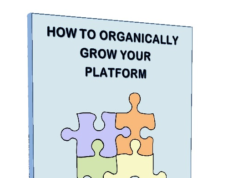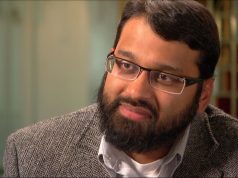Contents
This article is based on a lecture by renowned scholar Javed Ahmed Ghamidi. The lecture was delivered in an event held in Karachi (in 2011) that was organized by members of the local of business community. The topic of discussion was “Clash of civilizations”. In his remarkable address, Ghamidi highlighted 6 fault lines between the modern western civilization and the larger Muslim community (Ummah). The original talk was in Urdu. The translation is as follows:
“It is well known that the Muslim Ummah is facing challenges in the modern era. Many of these challenges stem from the ideological differences with the modern western civilization.
The clash of cultures is not a new phenomenon. Any civilization that ascends to global supremacy has far reaching influences on its contemporary and even successive civilizations. Roman culture (from its attire to rules of warfare) left its mark on most latter cultures. Similarly, the Iranian court etiquettes still feed into modern mannerism. Such is the influence of a dominant group that every individual feels the need to assimilate towards it. Emulating attributes of a successful regime by people is not only normal but naturally contagious.

So this cultural invasion of the modern western civilization that is being witnessed today is not something new. Going back in time to pre-renaissance Spain, we find that the Muslim reign had remarkable impact even on Christian priests of the time. This influence was not limited to the priest’s attire alone but also led to their theological assimilation with Islam (The “Gospel of Barnabus” may have been a manifestation of this influence). “The Divine comedy”, by Dante Alighieri in this regard, represents the apex of Muslim influence on European literature. Therefore, in the grand scheme of things, the phenomenon of cultural invasion is a normal affair.
However, what is unique about the current cultural invasion is its efficacy that has dwarfed all others. This astonishing advancement has been aided by the extraordinary rise of media in the last century. It has to be added that media itself is non-partisan and the same power of media can be used by counter cultures. If the rise of the modern western civilization is scrutinized judiciously- without the spectacles of malice- than it points to two major factors. These are the advances in modern physical and social sciences.
Looking at scientific advances, one can safely ascertain that this progress is not based on Machiavellian intent to subjugate the world. Everyone in the world has been using technology to their benefit. Technology is open for exploration from nuclear physics to medical procedures.
There has been even more advancement in social sciences compared to physical sciences. Every element of social science has evolved in a field in its own right. For instance, business always existed but business management has now become a separate field. Social sciences are a parallel universe of knowledge with several new worlds waiting to be explored. Even in the field of Law, there has been significant progress. Again the advancement of social sciences has provided equal opportunities to the whole world for the application of this knowledge. No one can question the intent of this advancement to be sinister.
However when one studies modern social sciences with a cultural background that is different to modern western civilization than they find themselves inadvertently on a collision course. There are 6 areas where the Muslim ummah clashes with the modern western thought. In some cases the view points are slightly different while in others they are diametrically opposite.
These six areas are as follows:
Crime and Sin
In a theoretic state, sins would be equal to crime, and would be punishable by law. However in a modern state, where the role of religion is diminishing, the sphere of sins has departed from sphere of crime. Despite some degree of overlap it is generally accepted that sins only become a crime when another person is affected by it.
Usury for example is considered a sin in Islam. However, because usury occurs as consensually between lender and a borrower, the modern mind cannot deem it to be a sin.
Treatment of non –Muslims
Within the Muslim world there exist different approaches to the treatment of non-Muslims. One of the concepts (that is hardly practiced) is that non-Muslims should be treated as “Dhimmi” and would be liable for a poll tax. Furthermore, in one model it is believed that non-Muslims would not have a role in the affairs of the government. This approach is unacceptable to the modern mind. In fact over 50 Muslim countries have already signed the UN charter of human rights. There is almost a global consensus on human rights. So this concept of discriminating minorities in the modern world should be re-examined.
The inception of an Islamic state
If there is a birth of an Islamic theocratic state, would it be inherently expansionist? Or would the current nation state boundaries be respected by it? What would be its foreign policy? What would be its economic model and how would it transact with the world? These are profound questions which have been worked on by several political-religious groups across the Muslim world. In some cases robust alternate models have been developed but there is a divided opinion on their application.
Implementation of Islam
Has a state got the right to implement religion on its populace? If so, to what extent? Iran and Saudi Arabia are two countries that have faced this question and even Afghanistan during the reign of Taliban. What have been the lessons learnt from implementation? There should be a critical evaluation of the measures. What has been the efficacy of these measures? Have they guided the populace into better human beings? These are all questions that need to be addressed.
Role of women in Society
In the Muslim world, it has been very much culturally established that the domain of the woman is more or less her home. This thought had also created room for itself in Islamic theology. The role of the women considered by the Ummah is largely that of a teacher, a guide to her children and a care taker. This is in stark contrast to the modern thought of women.
Negative attitude towards Arts
Generally speaking Muslims have a negative tendency to any form of art. Although arts did prosper under the Muslim rule in Spain, however in the modern culture, pop music in particular, is largely at odds with ethos of any religion leave alone Islam. This is because in the pop culture obscenity rides on the shoulder of arts. The influence of popular art and entertainment cannot be denied, however a clear line should be drawn between obscenity and art.”
Javed Ghamidi went further to suggest that the Muslim society is indifferent towards religious education. Rather than realizing the need to address the above mentioned issues through a theological discourse, it has turned a blind eye. At present if all the madrassas in Pakistan were to shutdown, very few people will feel affected by this. Madrassas of today are not producing any students who can tackle the above mentioned differences head on and find ways to deal with them. On the other hand the Muslim community is sensitive towards the medical doctors and their quality of education. If they got to know that people have stopped studying medicine than there would be uproar. A strong reaction would follow. There will be no such reaction if the news of madrasas closing in large numbers surfaces. It is because of this indifference and lack of realization of the foreseeable challenges that has made it impossible to produce quality scholars from the current system of religious education.
The current crop of graduates from Madrasas are incapable of understanding leave alone eradicating the ills of the society. They are as alien to the society as the society is to them.
Many other lectures of Javed Ghamidi are available on his website Al-Mawrid.
Feel free to share this article with your family and friends using the buttons below. More on Javed Ahmed Ghamidi can be found here.





